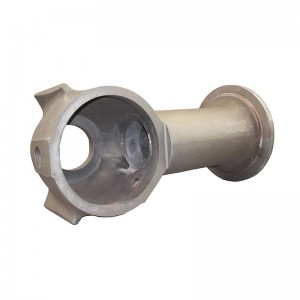- Afrikaans
- Albanian
- Amharic
- Arabic
- Armenian
- Azerbaijani
- Basque
- Belarusian
- Bengali
- Bosnian
- Bulgarian
- Catalan
- Cebuano
- China
- China (Taiwan)
- Corsican
- Croatian
- Czech
- Danish
- Dutch
- English
- Esperanto
- Estonian
- Finnish
- French
- Frisian
- Galician
- Georgian
- German
- Greek
- Gujarati
- Haitian Creole
- hausa
- hawaiian
- Hebrew
- Hindi
- Miao
- Hungarian
- Icelandic
- igbo
- Indonesian
- irish
- Italian
- Japanese
- Javanese
- Kannada
- kazakh
- Khmer
- Rwandese
- Korean
- Kurdish
- Kyrgyz
- Lao
- Latin
- Latvian
- Lithuanian
- Luxembourgish
- Macedonian
- Malgashi
- Malay
- Malayalam
- Maltese
- Maori
- Marathi
- Mongolian
- Myanmar
- Nepali
- Norwegian
- Norwegian
- Occitan
- Pashto
- Persian
- Polish
- Portuguese
- Punjabi
- Romanian
- Russian
- Samoan
- Scottish Gaelic
- Serbian
- Sesotho
- Shona
- Sindhi
- Sinhala
- Slovak
- Slovenian
- Somali
- Spanish
- Sundanese
- Swahili
- Swedish
- Tagalog
- Tajik
- Tamil
- Tatar
- Telugu
- Thai
- Turkish
- Turkmen
- Ukrainian
- Urdu
- Uighur
- Uzbek
- Vietnamese
- Welsh
- Bantu
- Yiddish
- Yoruba
- Zulu
Aug . 11, 2024 05:12 Back to list
Exploring the Benefits and Applications of Aluminum-Magnesium Alloy Casting in Modern Industries
Aluminum-Magnesium Alloy Casting An Overview
Aluminum-magnesium (Al-Mg) alloys are among the most versatile and widely used materials in the field of casting. Combining the lightweight properties of aluminum with the strength and corrosion resistance of magnesium, these alloys represent a key solution for various industrial applications, ranging from aerospace to automotive and marine industries.
Composition and Properties
Aluminum-magnesium alloys are typically characterized by magnesium content ranging from 3% to 9%. The most common alloys used in casting include 5xxx series alloys like A5083 and A535, known for their remarkable strength-to-weight ratio. The addition of magnesium improves the alloy's mechanical properties, including tensile strength, ductility, and weldability while enhancing resistance to corrosion, particularly in marine environments.
The creation of aluminum-magnesium alloy casts involves a precise melting process, where the metal is heated to temperatures between 700 to 800 degrees Celsius. This high-temperature process allows for the alloying of aluminum with magnesium, producing a homogenous molten metal. The casting process can take various forms, including sand casting, die casting, and investment casting, each of which offers unique advantages depending on the application requirements.
Applications
Al-Mg alloys are particularly popular in applications where weight reduction is crucial. In the aerospace industry, for example, components such as aircraft frames and engine mounts benefit from the alloy's high strength-to-weight ratio. In automotive manufacturing, using aluminum-magnesium alloys helps manufacturers produce lighter vehicles, improving fuel efficiency without compromising safety.
aluminum-magnesium alloy casting

The marine industry also heavily relies on Al-Mg alloys due to their excellent resistance to corrosion in seawater. Boat hulls, fittings, and even structural components are often made from these alloys to ensure longevity and reliability in challenging environments. Additionally, Al-Mg alloys find applications in the manufacturing of pressure vessels, heat exchangers, and chemical processing equipment due to their ability to withstand harsh conditions without succumbing to corrosion.
Advantages of Aluminum-Magnesium Alloy Casting
One of the primary advantages of aluminum-magnesium alloy casting is its outstanding corrosion resistance. Unlike other materials, Al-Mg alloys maintain their integrity over time, even when exposed to harsh weather conditions or corrosive environments. This characteristic significantly extends the lifespan of components produced from these alloys, leading to lower maintenance costs and enhanced performance.
Another notable benefit is the alloy's excellent machinability and formability. Manufacturers can easily shape and work with aluminum-magnesium alloys, allowing for intricate designs and components that meet precise engineering specifications. This adaptability makes Al-Mg alloys a favored choice in custom and specialized applications.
Furthermore, the lightweight nature of Al-Mg alloys contributes to energy savings in transportation applications, where reducing overall weight can lead to substantial fuel savings. This eco-friendliness aligns well with modern industry trends toward sustainability and efficient resource usage.
Conclusion
In summary, aluminum-magnesium alloy casting stands out as a premier choice in diverse industrial applications owing to its strength, lightweight characteristics, and corrosion resistance. As technology continues to advance, the demand for these alloys is expected to grow, driving innovation in casting techniques and further expanding their application. Whether in aerospace, automotive, or marine environments, Al-Mg alloys will remain synonymous with quality and performance, making them indispensable in the manufacturing landscape. As industries continue to evolve, the role of aluminum-magnesium alloys will undoubtedly expand, offering exciting possibilities for future advancements.
-
8mm Thin-Walled Cast Steel Manhole Cover Pallet Bottom Ring | Durable
NewsAug.04,2025
-
Premium Cast Iron Water Main Pipe: Durable, Corrosion-Resistant
NewsAug.03,2025
-
Durable Cast Iron Water Mains | AI-Optimized Systems
NewsAug.02,2025
-
High-Efficiency Propane Boiler for Baseboard Heat | Save Energy
NewsAug.01,2025
-
Premium Source Suppliers for Various Gray Iron Castings
NewsJul.31,2025
-
Durable Cast Iron Water Main Pipes | Long-Lasting
NewsJul.31,2025


